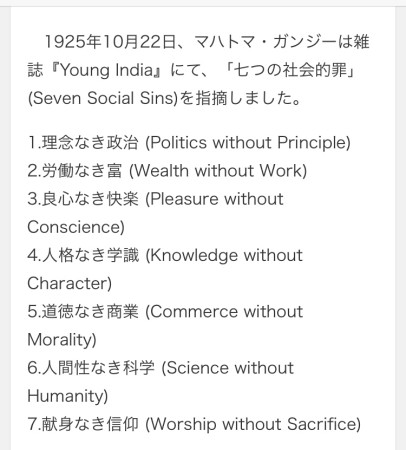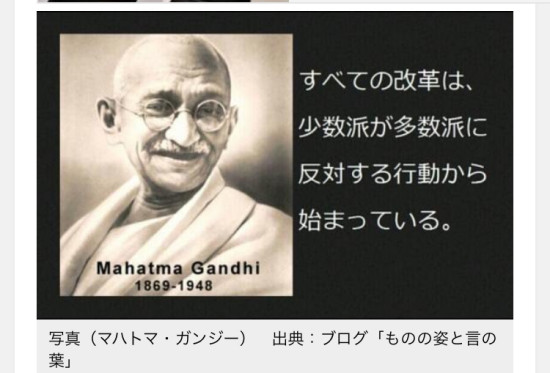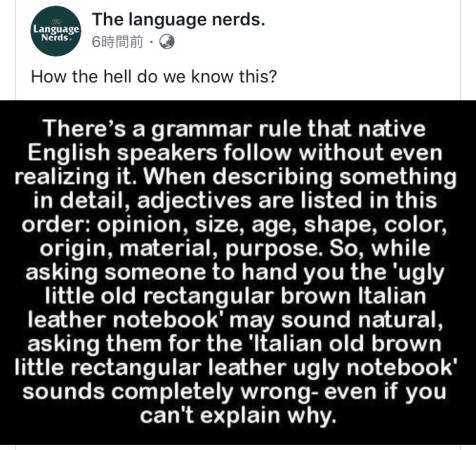カテゴリー別アーカイブ: 英語で一日一言
☆Gentrification
Amazon社が、ニューヨーク州ロングアイランドに進出する計画を断念しました。日本経済新聞によると、”市と州が合計で30億ドル規模の助成金や税優遇処置を提供する代わりに、アマゾンは2万5千人の新規雇用を生んで地元経済に貢献するというのが、アマゾンの第2本社誘致のうたい文句だった。だが、地元民からは反発が噴出した。”と、言う事で、すでに巨額な利益を上げている企業に対する税優遇処置が大きく取り上げられていました。 以前、私自身、米国メリーランド州の駐日事務所で、日本企業のメリーランド州への誘致/投資を担当していた頃、州内進出企業に対する税優遇措置を進め、各州競って、州内への企業誘致に取り組んでいたことを思い出しました。大企業が進出することにより、雇用の拡大、経済の活性化が期待できるからです。お隣のデラウェア州などは、法人税0(zero)で対抗していました。ニューヨーク州/市政府も、今回は何としてでもAmazon社に進出してもらえるよう、企業にとって魅力的なビジネス環境を整えていた事が察知できます。 今回の件については、米国内では、税の優遇策もさることながら、”Gentrification”の功罪に関する観点からのコメントが多いように感じました。
Gentrification means the restoration and upgrading of deteriorated urban property by middle-class or affluent people, often resulting in displacement of lower-income people. (The Free Dictionary)
(Gentrification-貧困地区の再開発-の意味は、中産または上流階級が劣化した都市の一帯を修復または開発することであり、その結果往々にして低所得層が追い出されることになる。)
昨年から、Gentrificationの観点から取り上げられた記事(下記参照)が多く、Amazon社がどのような決断を下すのか何となく気になっていました。
https://www.fastcompany.com/90274295/is-gentrification-ever-ethical
Amazon’s move will gentrify neighborhoods. At what social cost?
Amazon’s move to Long Island City, in New York, will almost certainly drive out poorer residents. Is gentrification ever ethical?
BY ALEXANDRA STAUB
5 MINUTE READ
When large companies move into an area, politicians often proclaim how the new business will create jobs, increase tax revenues, and thus lead to economic growth. This is one reason local governments offer tax incentives to businesses willing to move in.
Amazon’s decision to locate offices in Long Island City across the East River from Manhattan, and in Crystal City on the outskirts of Washington, D.C., follows this pattern. The New York location borders the largest low-income housing area in the United States, with mostly African-American and Hispanic residents whose median household income is well below the federal poverty level. These people, local politicians claim, will benefit from Amazon’s move to the neighborhood.
However, when large companies with an upscale and specialized workforce move into an area, the result is more often gentrification. As economic development takes place and prices of real estate go up, the poorer residents of the neighborhood are forced out and replaced by wealthier ones.
Is such a market-driven approach that accepts displacement ethically justifiable? And how do we even measure its costs?
The largest public housing complex in the country, Queensbridge Houses, is located near the spot where Amazon plans to put a new headquarters.
CAN GENTRIFICATION EVER BE ETHICAL?
Although politicians don’t typically frame gentrification as a question of ethics, in accepting the displacement of poor residents in favor of better-off residents they are, in effect, making an argument based on ideas of utilitarianism.
Utilitarianism, developed as a modern theory of ethics by the 19th-century philosophers Jeremy Bentham and John Stuart Mill, seeks the greatest balance of happiness over suffering in society as a whole. Utilitarianism seeks the greatest net benefit in any situation. In economics, it is often expressed in monetary terms.
A classic example is of a new dam that will generate electricity, irrigate crops and provide a new lake for recreation. But it might also displace people and flood land that is used for other purposes.
Economists might calculate the dollar cost of the dam itself, the monetary value of the land lost, and the cost to relocate displaced people. They would weigh these monetary costs against the value of the electricity gained, the increased food production, and added income from recreation.
What economists miss in these calculations are the social costs. For example, they do not count the lives disrupted through displacement, nor do they determine if the benefits of the dam are equally available to all.
Gentrification, as an economic and social phenomenon, is not limited to cities in the United States. Gentrification has become a global issue. In cities as geographically dispersed as Amsterdam, Sydney, Berlin and Vancouver, gentrification has been linked to free-market economic policies. Put another way, when governments decide to let housing and property markets exist with little or no regulation, gentrification typically flourishes.
When neighborhoods gentrify, politicians and policymakers often point to physical and economic improvements and the better quality of life for residents in an area after gentrification. For example in 1985, during a period of intense urban renewal in New York City, the Real Estate Board of New York took out advertisements in The New York Times to claim that “neighborhoods and lives blossom” under gentrification.
Through the lens of utilitarianism, one could say that the population living in neighborhoods after gentrification experience greater happiness than before.
The fallacy of this argument is, of course, that these “happier” populations are overwhelmingly not the same people as were there before gentrification. As a scholar who works on questions of ethics in the built environment, I have studied how we, as the concerned public, can better equip ourselves to see through such arguments.
Economic development in an area leads to less poverty in that area, not because the personal economic situation of poor people who live there has improved, but because the poor people have quite simply been erased out of the picture.
ERASING THE WORKING CLASS
Urban geographer Tom Slater points to a similar disappearing act within gentrification research.
Researchers once focused on the experiences of those negatively affected by gentrification. For example, one study of the Williamsburg neighborhood of Brooklyn found that gentrification commonly removed manufacturing from inner city areas, leading to blue-collar workers losing urban job opportunities.
Another study found that gentrification was associated with increased social hardships for residents. Not only did their housing expenses rise, social networks disintegrated as neighbors were forced to move elsewhere. In an examination of seven New York neighborhoods, for example, the researchers found that half of the poor households who had remained in gentrifying areas were paying more than two-thirds of their income for rent.
Where gentrification research once focused on evictions of low-income and working class residents, housing affordability problems, and torn social fabrics caused through changing neighborhoods, the talk has since turned to the experiences of the middle classes who are doing the gentrifying.
Terms like “competitive progress” and “regeneration, revitalization and renaissance” of urban neighborhoods are commonly used to describe a process whereby physically distressed areas of a city have their buildings renovated and updated.
Urban planner and best-selling author Richard Florida also focuses on the gentrifiers. In his much discussed 2002 book, Florida maintains that cities with a large gay and “bohemian” population of artists and intellectuals tend to thrive economically.
He calls this group of hip and affluent urbanites the “creative class,” and states that they are responsible for a city’s economic success. When Florida’s book came out, city leaders throughout the United States quickly seized on his ideas to promote their own urban renewal projects.
When researchers and urban leaders focus on the gentrifiers, the displaced poor and working class are doubly erased–from the gentrifying areas they once called home, and with few exceptions, from the concerns of urban policymakers.
THE NEED TO RESTORE HAPPINESS
Amazon’s move to Washington and New York along with an influx of well-paid employees brings us back to the question of how we might apply the ethical concept of utilitarianism to understand the greatest balance of happiness over suffering for the greatest number of people.
In my view, this number must include the poor and working class. In an area threatened by gentrification, the economic and social costs for displaced residents is typically high.
To make ethical decisions, we must consider the people who suffer the consequences of rapidly rising costs in the area they call home as part of the ethical equation.
Alexandra Staub is associate professor of architecture, affiliate faculty, at the Rock Ethics Institute at Pennsylvania State University. This article is republished from The Conversation under a Creative Commons license. Read the original article.
☆Back-scratcher
☆青春
今日は、青春とは….について盛り上がりました。 そう思えば、サムエル・ウルマンの詩に何度、励まされてきたことか…..(^^)
青春
青春とは人生のある期間ではなく
心の持ち方をいう。
バラの面差し、くれないの唇、しなやかな手足ではなく
たくましい意志、ゆたかな想像力、もえる情熱をさす。
青春とは人生の深い泉の清新さをいう。
青春とは臆病さを退ける勇気
やすきにつく気持ちを振り捨てる冒険心を意味する。
ときには、20歳の青年よりも60歳の人に青春がある。
年を重ねただけで人は老いない。
理想を失うときはじめて老いる。
歳月は皮膚にしわを増すが、熱情を失えば心はしぼむ。
苦悩、恐怖、失望により気力は地にはい精神は芥(あくた)になる。
60歳であろうと16歳であろうと人の胸には
驚異にひかれる心、おさな児のような未知への探求心
人生への興味の歓喜がある。
君にも我にも見えざる駅逓が心にある。
人から神から美、希望、よろこび、勇気、力の
霊感を受ける限り君は若い。
霊感が絶え、精神が皮肉の雪におおわれ
悲嘆の氷にとざされるとき
20歳だろうと人は老いる。
頭を高く上げ希望の波をとらえるかぎり
80歳であろうと人は青春の中にいる。
Youth
Youth is not a time of life;
it is a state of mind;
it is not a matter of rosy cheeks, red lips and supple knees;
it is a matter of the will, a quality of the imagination, a vigor of the emotions;
it is the freshness of the deep springs of life.
Youth means a temperamental predominance of courage
over timidity of the appetite, for adventure over the love of ease.
This often exists in a man of sixty more than a boy of twenty.
Nobody grows old merely by a number of years.
We grow old by deserting our ideals.
Years may wrinkle the skin,
but to give up enthusiasm wrinkles the soul.
Worry, fear, self-distrust bows the heart
and turns the spirit back to dust.
Whether sixty or sixteen,
there is in every human being’s heart the lure of wonder,
the unfailing child-like appetite of what’s next,
and the joy of the game of living.
In the center of your heart and my heart
there is a wireless station;
so long as it receives messages of beauty, hope, cheer, courage and power
from men and from the infinite,
so long are you young .
When the aerials are down,
and your spirit is covered with snows of cynicism and the ice of pessimism,
then you are grown old, even at twenty,
but as long as your aerials are up,
to catch the waves of optimism,
there is hope you may die young at eighty.
☆Mahatma Gandhi(マハトマ•ガンジー)
☆形容詞の順番
☆I guess….
☆a- 否定をあらわす接頭辞
否定をあらわすde-に引き続き、a-の例も集めてみました:
atheist(無神論者)
apolitical(政治に無関心な、ノンポリの)
asymmetrical(非対称的な)
apathetic(無感動の)
atypical(型にあてはまらない、特殊な)
abiological(非生物学的な)
asexual(無性の、性と関係のない、性に興味のない)
acritical(批判的でない、重篤でない),etc.
asymptomatic (無症状の)
☆断捨離 (Declutter) de- 否定を意味する接頭辞
今日は、“断捨離”について話し合いました(^^)
断捨離は、英語では、”minimalist” “declutter” と訳されています。 Declutter one’s lifeは、人生そのものを整理するような意味になります。 人生の断捨離… どうしても、捨てられないもの、捨ててはいけないものを考えていたら…. 家族/友人/一生懸命に打ち込める仕事でした。 そっか〜 あとは、何もいらなかったんだ! 残りの人生、大切な人/仕事を大切にしながらシンプルに生きていきたいな〜と、あらためて思いました。
de-の接頭辞で、”否定”を意味するものを集めてみました:
deactivate (動作を停止させる/監視装置などを解除する/不活性化する)
devaluate (価値を低くする/通貨を切り下げる)
deregulate (規制緩和/規制解除)
decentralization (地方分権)
dehumanization (非人間化)
dehydration (脱水症)
deaccelerate (減速する), etc.
deactivate(装置の解除), deregulate(規制緩和), decentralization(地方分権)などは、通訳・翻訳時によく使ったように思います:)






